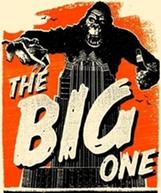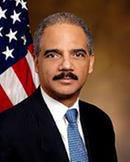 It's been a tumultuous weekend in publishing.
It's been a tumultuous weekend in publishing.
Following the purchase of Goodreads by Amazon and reports that the European Union will approve the Random House-Penguin merger--which has already been blessed by antitrust regulators in the U.S., Australia and New Zealand--American publishers jumped on the consolidation bandwagon. The result, announced late last night: the merger of the Big Six into a single U.S. mega-publisher. As one senior publishing executive said, "If you can't beat 'em, become 'em."
 High-level conversations began Thursday night after the Amazon-Goodreads announcement with a few furtive chats between U.S. heads of houses on burner phones and via handwritten notes folded into paper airplanes. Initially, HarperCollins and Hachette were in discussions to merge, while Simon & Schuster and Macmillan worked on an agreement to hook up. But soon those two groups began discussing a larger merger that would be a counterweight to Penguin Random House. That development alarmed executives at Random House and Penguin, who argued that there was a larger force to reckon with. As night fell on Easter Sunday, executives of the Big Six came to a historic agreement, after which they celebrated with a dinner at Picholine.
High-level conversations began Thursday night after the Amazon-Goodreads announcement with a few furtive chats between U.S. heads of houses on burner phones and via handwritten notes folded into paper airplanes. Initially, HarperCollins and Hachette were in discussions to merge, while Simon & Schuster and Macmillan worked on an agreement to hook up. But soon those two groups began discussing a larger merger that would be a counterweight to Penguin Random House. That development alarmed executives at Random House and Penguin, who argued that there was a larger force to reckon with. As night fell on Easter Sunday, executives of the Big Six came to a historic agreement, after which they celebrated with a dinner at Picholine.
"In the interests of a semblance of competition," the publishing giant said it will have two operating groups. One, under the aegis of Random House, combines HarperCollins and Hachette and will be called Random Ha Ha, while the other, under Penguin, comprises Macmillan and Simon & Schuster, and will be called SSMac Penguin.
 The CEOs of all six publishers will constitute a managing directorate and be co-co-co-co-co-co CEOs. Efficiencies resulting from the mergers will lead to downsizing in less essential areas such as editorial, publicity, sales and marketing, warehouse operations and customer service. In one of its first moves, Random Ha Ha/SSMac Penguin indicated that it is absorbing Bookish, which will be rebranded ReallyGoodReads.
The CEOs of all six publishers will constitute a managing directorate and be co-co-co-co-co-co CEOs. Efficiencies resulting from the mergers will lead to downsizing in less essential areas such as editorial, publicity, sales and marketing, warehouse operations and customer service. In one of its first moves, Random Ha Ha/SSMac Penguin indicated that it is absorbing Bookish, which will be rebranded ReallyGoodReads.
 While the new company has not received formal approval of the U.S. Justice Department, speaking yesterday at the White House at a ceremony honoring his appointment to the Amazon board of directors, Attorney General Eric Holder spoke favorably of the megamerger, saying, "Frankly I'm surprised that even with the lawsuit, it took publishers so long to understand that the Obama administration supports monopolies. With this change, we may have to revisit the e-book agency model pricing case."
While the new company has not received formal approval of the U.S. Justice Department, speaking yesterday at the White House at a ceremony honoring his appointment to the Amazon board of directors, Attorney General Eric Holder spoke favorably of the megamerger, saying, "Frankly I'm surprised that even with the lawsuit, it took publishers so long to understand that the Obama administration supports monopolies. With this change, we may have to revisit the e-book agency model pricing case."
The creation of a single mega publisher will have many ramifications in the business. For example, while the new house may not take as much space overall at BEA as it would separately, its five booths are still likely to be one of the largest sections at the Javits Center. Parties during BEA may be held at the same site on consecutive nights, serving the same food and drink.
 Reaction to the merger varied. Authors Guild president Scott Turow issued a statement decrying the move as "a further blow to the culture of diversity in our diverse culture" while several literary agents expressed concern that publishers will no longer offer "a diversity of bids" for clients' work.
Reaction to the merger varied. Authors Guild president Scott Turow issued a statement decrying the move as "a further blow to the culture of diversity in our diverse culture" while several literary agents expressed concern that publishers will no longer offer "a diversity of bids" for clients' work.
In the spirit of the holidays, several observers noted a Holy Week parallel, saying that while the publishing industry had recently been crucified by Amazon and the Justice Department, through the merger it has been resurrected. Others drew inspiration from Passover, which also took place during the past week, and, of course, celebrates the people of the book's liberation from slavery and their trek to the Promised Land. --John Mutter

